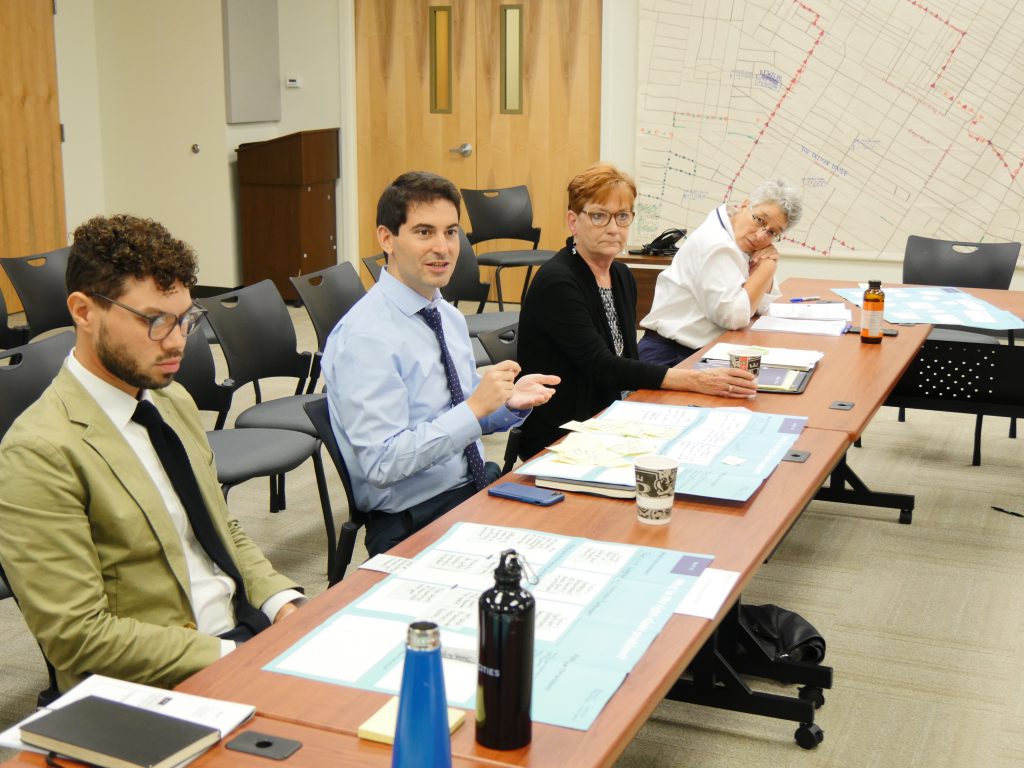What the Mayors Challenge team learned after offering training to 4,000 city employees in 308 U.S. cities

By Anne Emig, Bloomberg Philanthropies Government Innovation Team
The Mayors Challenge has been an integral part of Bloomberg Philanthropies’ strategy to help city leaders generate innovative solutions since 2013. But we’ve never attempted a competition on the scale of what we’re doing right now.
After successful runs in the U.S. (2013), Europe (2014), and Latin America and the Caribbean (2016), we brought the Mayors Challenge back to the United States this year as the first investment in Michael Bloomberg’s $200-million American Cities Initiative, a recently announced suite of new and expanded offerings that will strengthen U.S. cities through bold leadership.
With 555 cities entered, this year’s Challenge is the biggest ever. It also includes an unprecedented amount of training for leaders in these cities. Over the past two months, the Mayors Challenge team has conducted full-day “Idea Accelerator” workshops in 308 city halls to nearly 4,000 city employees.
Our primary goal for offering over 2,000 hours of skill-building workshops was to empower city leaders to tackle their toughest challenges. But as it turns out, we’ve learned quite a bit ourselves by engaging at the grassroots with the men and women working on the front lines.
So what did we learn? Here are seven highlights from our full report:
- Cities big and small face similar problems. In surveys conducted at the workshops, there were large areas of overlap on top-level priorities. For example 30 percent cited economic challenges such as workforce development; and 26 percent identified income inequality and social inclusion. Similarly, when asked to identify specific problem areas, nearly a quarter—22 percent—cited affordable housing and 20 percent said traffic congestion.
- At the same time, there is a wide variety in the types of problems cities face, from broadband access to opioids, public safety to climate change, increasing government efficiency to citizen engagement. The survey also found cities contending with two fundamentally different trends: The benefits and challenges that come with rapid population growth (affordable housing, traffic, economic equity) and the opposite range of problems that come as the population core dwindles (lack of resources, crime, and drug addiction).
- City leaders may be faced with difficult jobs, but they remain enthusiastic. When asked about the source of their optimism, 48 percent cited resilience and determination of their constituents and 32 percent said the growing opportunities to share ideas and solutions with other mayors. Only 5 percent were optimistic about the prospect of increased help and support from the federal government. Participants told us they are excited to “drill down on our city’s problem,” use the “integrated approach to surfacing new ideas” and that the workshops “generated a lot of energy and creativity.”
- Cities find inspiration everywhere. Twenty-two percent of participants said they get new ideas from other cities, while 18 percent said they get them from constituents; 19 percent from nonprofits or community groups; 18 percent from businesses or the private sector; and 18 percent from city staff. Only 3 percent said they got ideas from statewide elected officials – and only 2 percent from Washington, D.C.
- City officials want to exhibit bold leadership. Ninety percent of participants said they felt newly “energized” to produce an innovative Mayors Challenge proposal after taking part in the Accelerator workshop. Indeed, many participants mentioned the “lack of support from the state and federal levels,” “a disconnect with Congress,” and “declining trust in government” as top concerns they hear from fellow residents. So, it wasn’t difficult to see why our participants were enthusiastic: As city residents see a shift in priorities at the state and federal level, local leaders are showing they’re ready to seize the opportunity and try new approaches to solving the urgent challenges they face.
- Philanthropy can play a crucial role in catalyzing urban innovation. The Accelerator process found local officials hungry for the kind of countrywide movement that the American Cities Initiative can provide. Sixty percent told us their session was a memorable, once-in-lifetime experience and 97 percent said they are better able to understand a problem and generate innovative solutions. Many reflected the potential for what they learned to go beyond just our Mayors Challenge. As they told us, “this can be a very powerful process” and “I intend to use the full range of sections associated with “Idea Accelerator toolkit.” Nearly eight in ten participants told us they learned new ways to engage residents to generate more responsive solutions. As one participant pointed out, “I will use different approaches that work with different groups that will make me a better leader.”
- Cities of all sizes and stripes ready to innovate. The record response to this year’s Mayors Challenge—with Red and Blue states almost evenly represented by both large and small cities—was mirrored by the cross-country participation in the Idea Accelerators. This enthusiasm underscores the need to double down on our support of U.S. cities, especially by offering more coaching and technical support and more opportunities than ever before for city leaders to learn from one another and share lessons and best practices.
The next milestone for the Mayors Challenge is October 20, when initial applications are due. From there, we’ll announce 35 “Champion Cities” in January, awarding each city up to $100,000 to test and refine their ideas, creating a coast-to-coast innovation laboratory. Winners of the Mayors Challenge will be announced in October 2018, with the grand prize winner awarded $5 million and four finalists winning $1 million to bring their ideas to life.